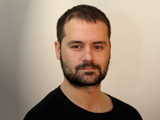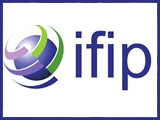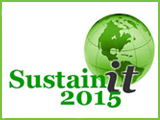IMDEA Networks

Archives: Events
PhD Thesis defense: Structural Issues and Energy Efficiency in Data Centers
With the rise of cloud computing, data centers have been called to play a main role in the Internet scenario nowadays. Despite this relevance, they are probably far from their zenith yet due to the ever increasing demand of contents to be stored in and distributed by the cloud, the need of computing power or the larger and larger amounts of data being analyzed by top companies such as Google, Microsoft or Amazon.
Read more arrow_right_altFuture Adaptive Communication Systems Technology
Tablets and smartphones have become the favorite gateway to the Internet for a majority of users. Being equipped with plenty of sensors, these devices enable far more than traditional web browsing.
Read more arrow_right_altIFIP WG 7.3 Performance 2014 – The 32nd International Symposium on Computer Performance, Modeling, Measurements and Evaluation
The IFIP Performance conference aims to bring together researchers interested in understanding and improving the performance of communication systems by means of state-of-the-art quantitative models and solution techniques.
Read more arrow_right_altSustainIT 2015 – The 4th IFIP Conference on Sustainable Internet and ICT for Sustainability
In the last years, the increasing social awareness about the need for containing energy consumption within sustainable rates has caught the interest of both the industrial and academic communities.
Read more arrow_right_altOpenVLC: a Research Platform for Visible Light Communication Networks
In this talk, we introduce the OpenVLC, a software-defined open-source research platform for Visible Light Communication (VLC) networks. Built around the embedded Linux platform BeagleBone Black together with simple optoelectronic transceiver front-end, OpenVLC offers a basic physical layer, a set of essential medium access primitives, as well as interoperability with Internet protocols.
Read more arrow_right_altTalentum Startup Internships Selection Event 2015
On April 22nd, 2015, IMDEA Networks and Telefonica, in collaboration with the SEPI Foundation, launch a new edition of the Talentum Startups program.
Read more arrow_right_altA Virtual Laboratory for Distributed Systems Research Examples in Research (MAKI) and Teaching
Networking research and development is an important field in information technology and its importance grows with the rise of the Internet and the ubiquity of worldwide communication.
Read more arrow_right_altQuantifying Information Overload in Social Media and its Impact on Social Contagions
Information overload has become an ubiquitous problem in modern society. Social media users and microbloggers receive an endless flow of information, often at a rate far higher than their cognitive abilities to process the information.
Read more arrow_right_altPhD Thesis defense: Performance evaluation of floating content for context-aware applications
Context-awareness is a peculiar characteristic of an expanding set of applications that make use of a combination of restricted spatio-temporal locality and mobile communications, to deliver a variety of services. Opportunistic communications satisfy well the communication requirements of these applications, because they naturally incorporate context.
Read more arrow_right_altPhD Thesis defense: A system for the detection of Limited Visibility in BGP
The performance of the global routing system is vital to thousands of entities operating the Autonomous Systems (ASes) which make up the Internet. The Border Gateway Protocol (BGP) is currently responsible for the exchange of reachability information and the selection of paths according to their specified routing policies.
Read more arrow_right_alt











Recent Comments